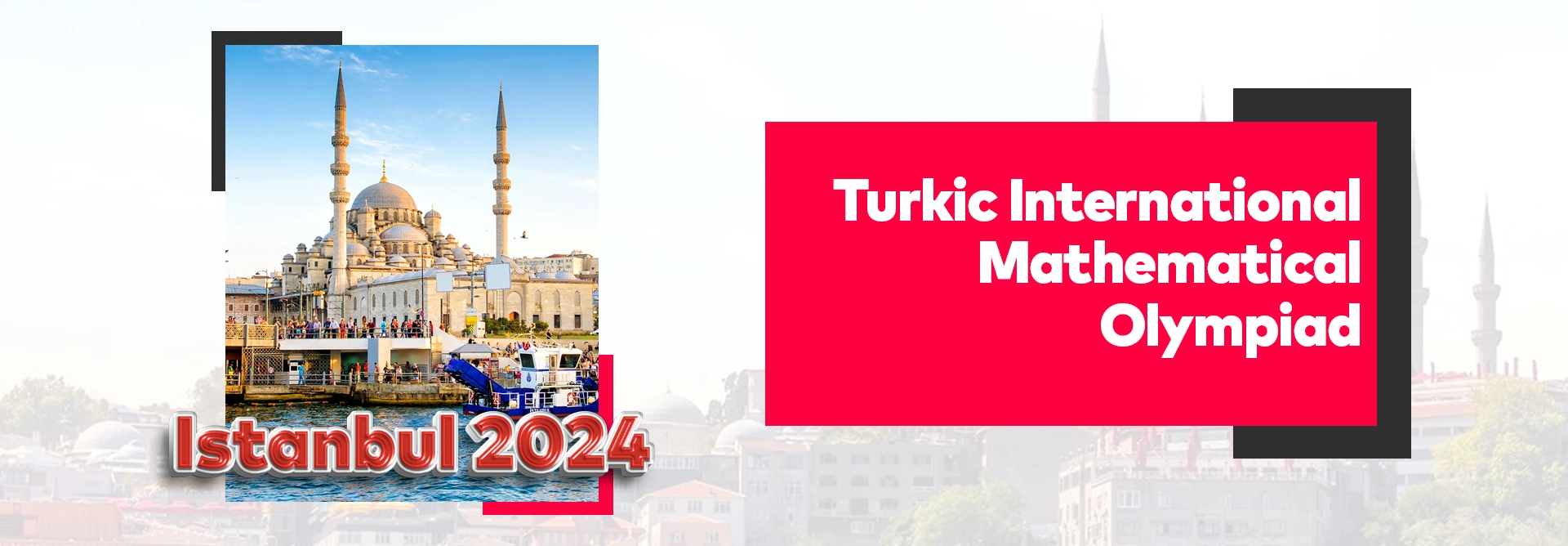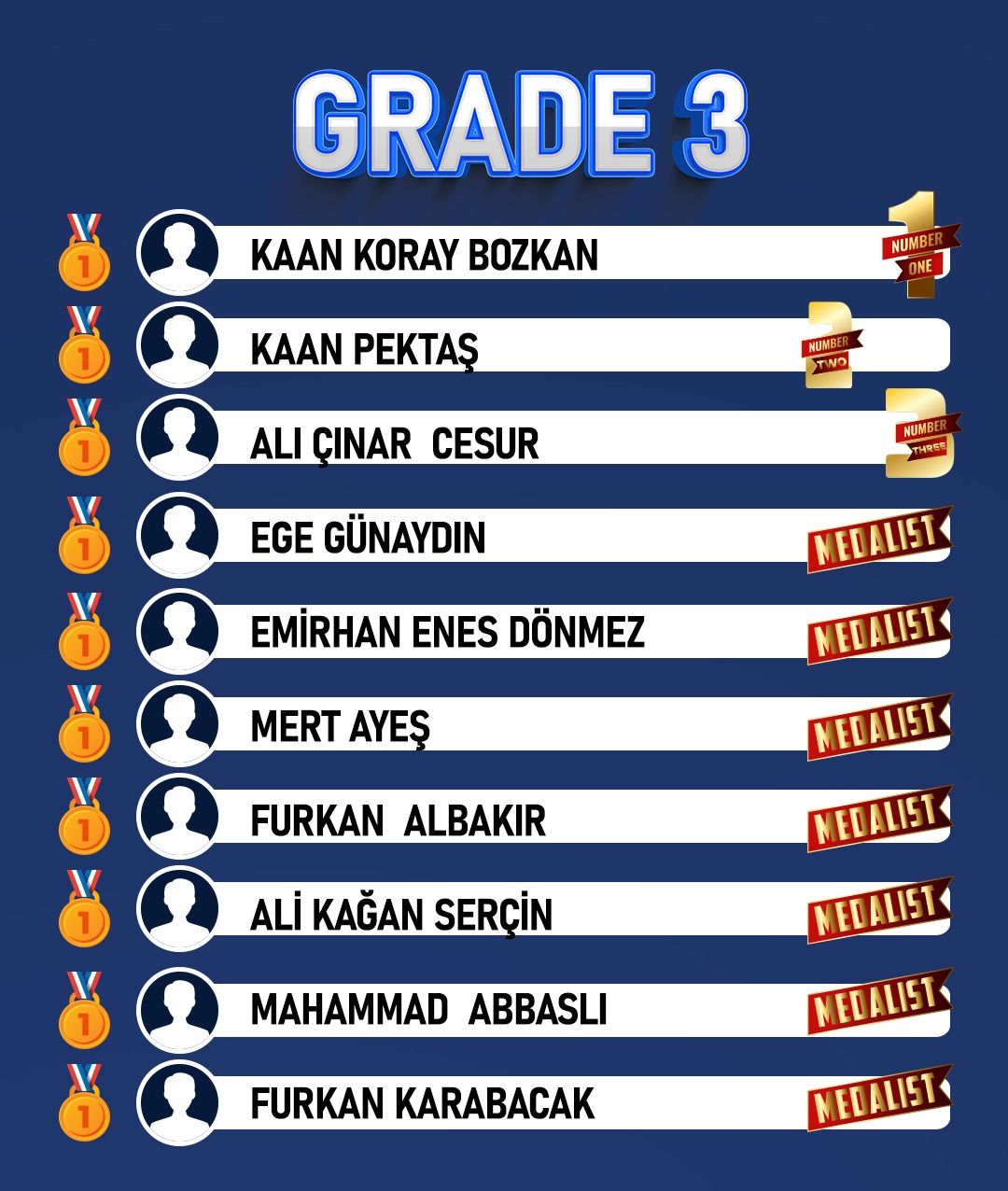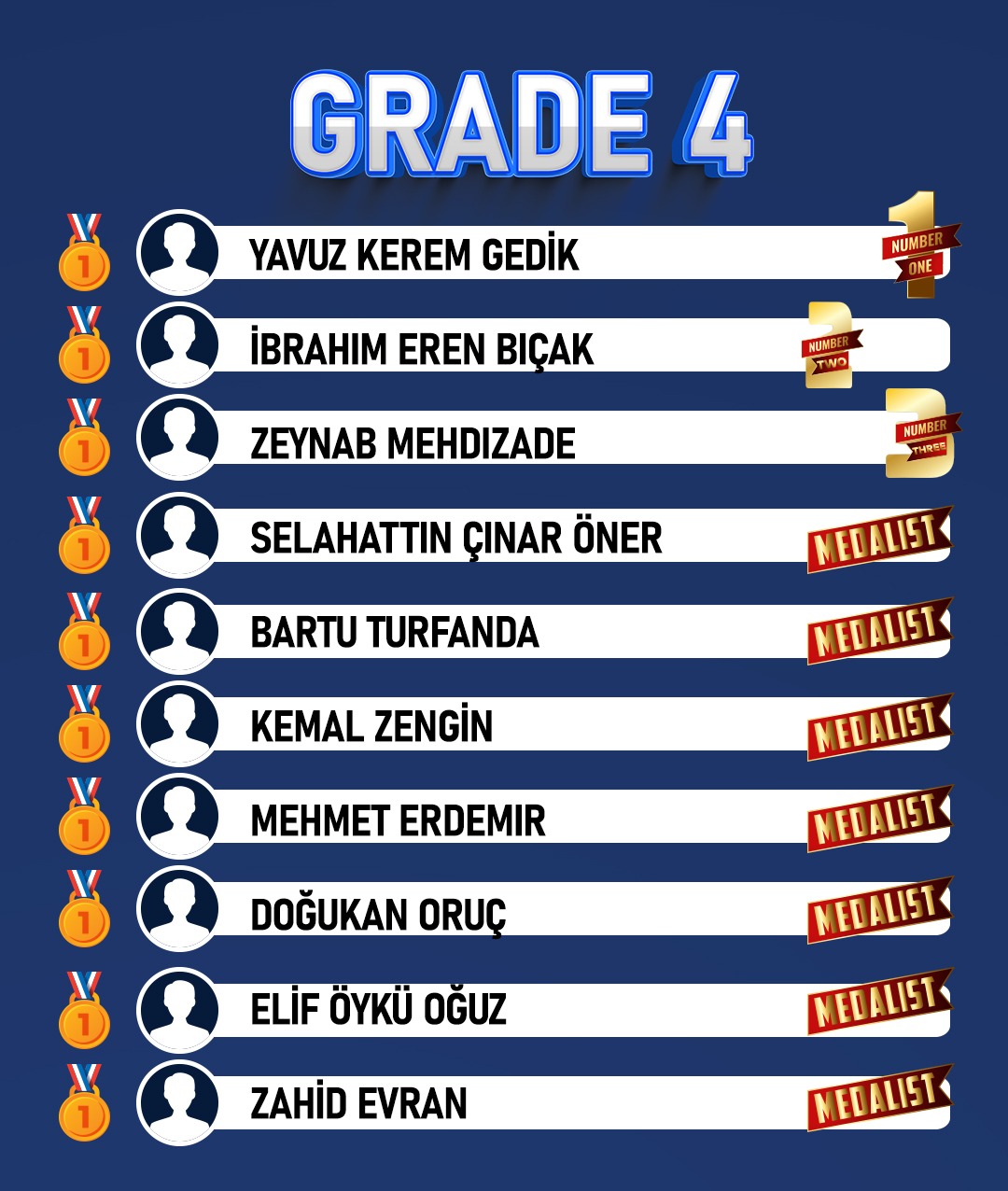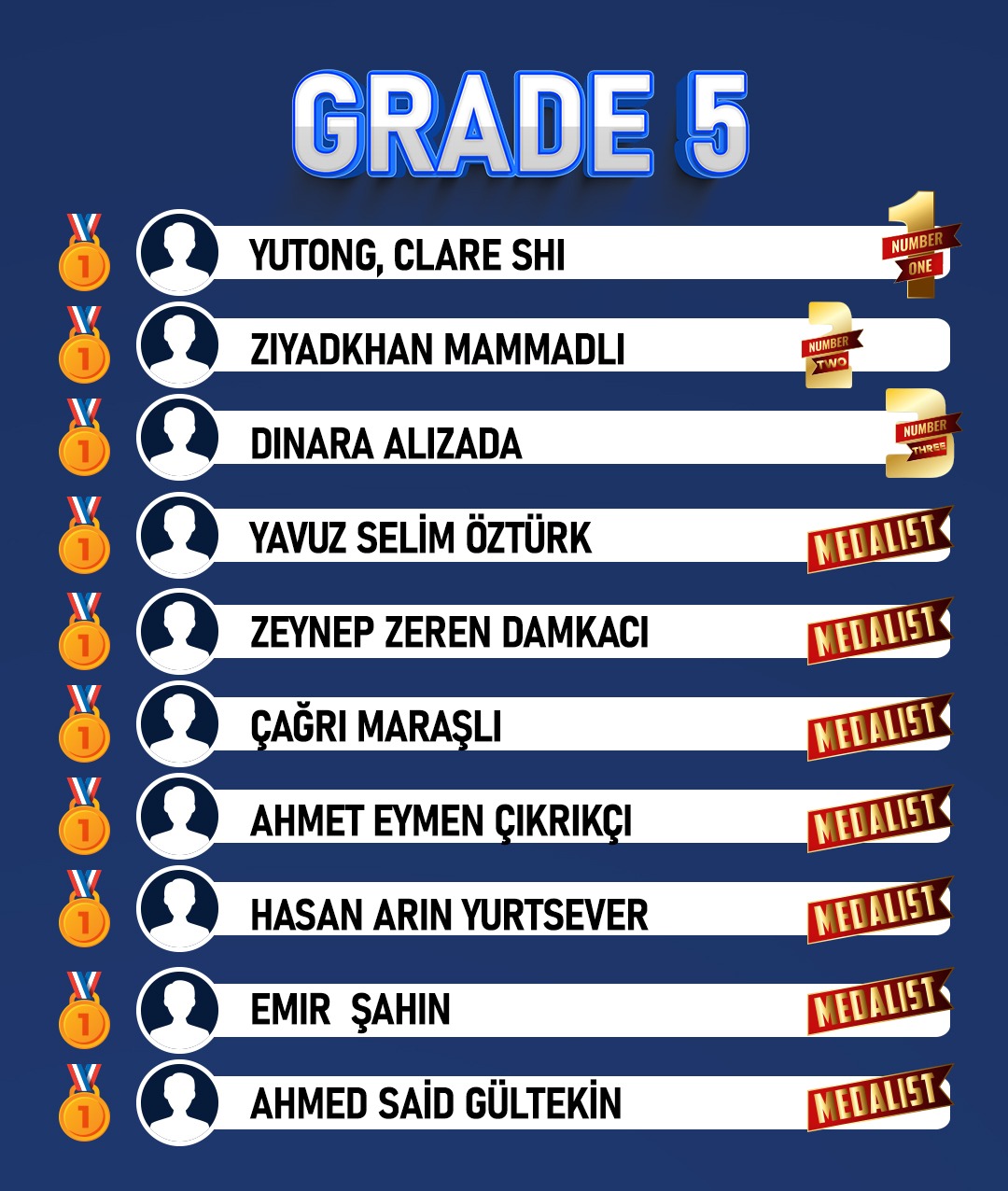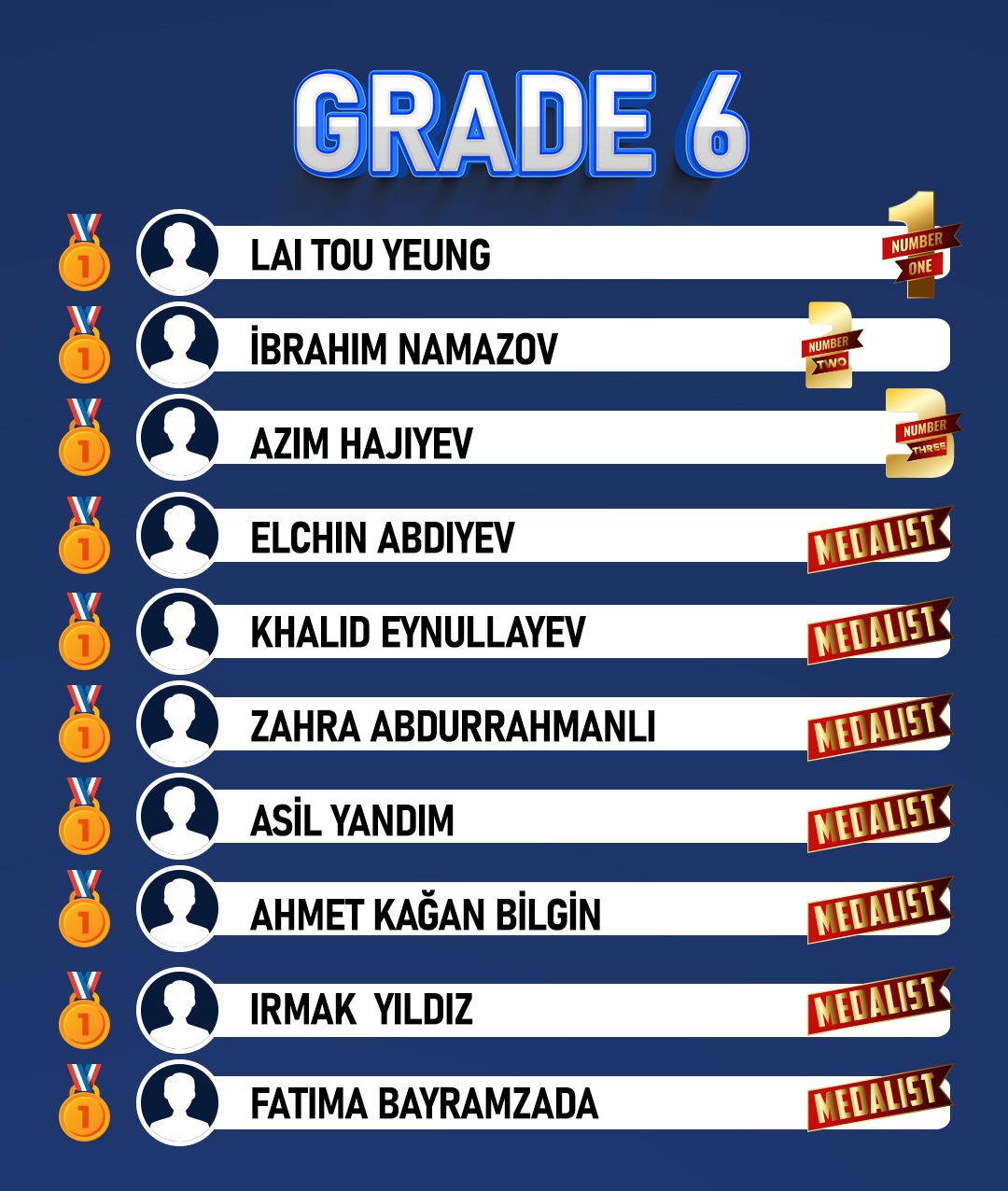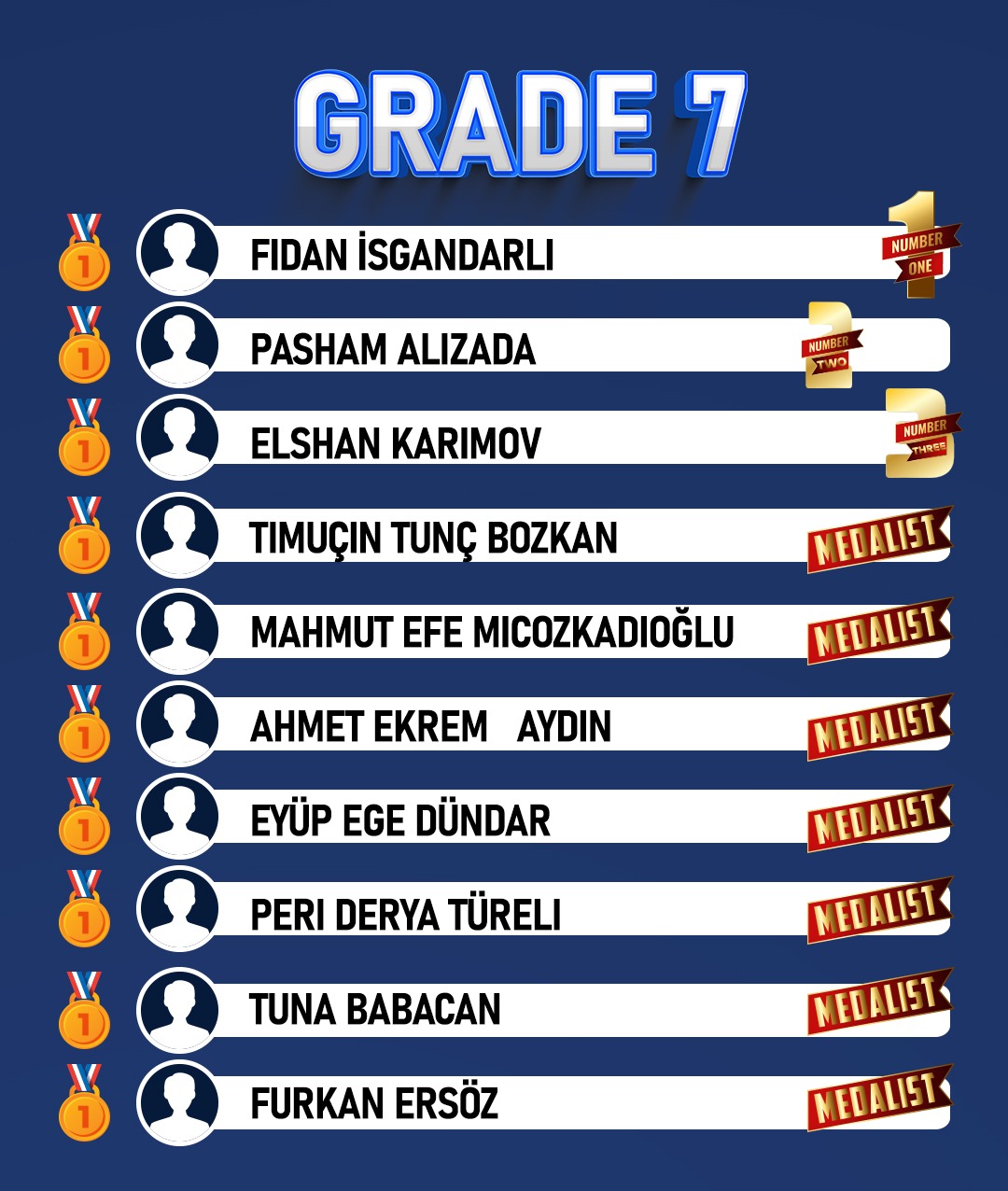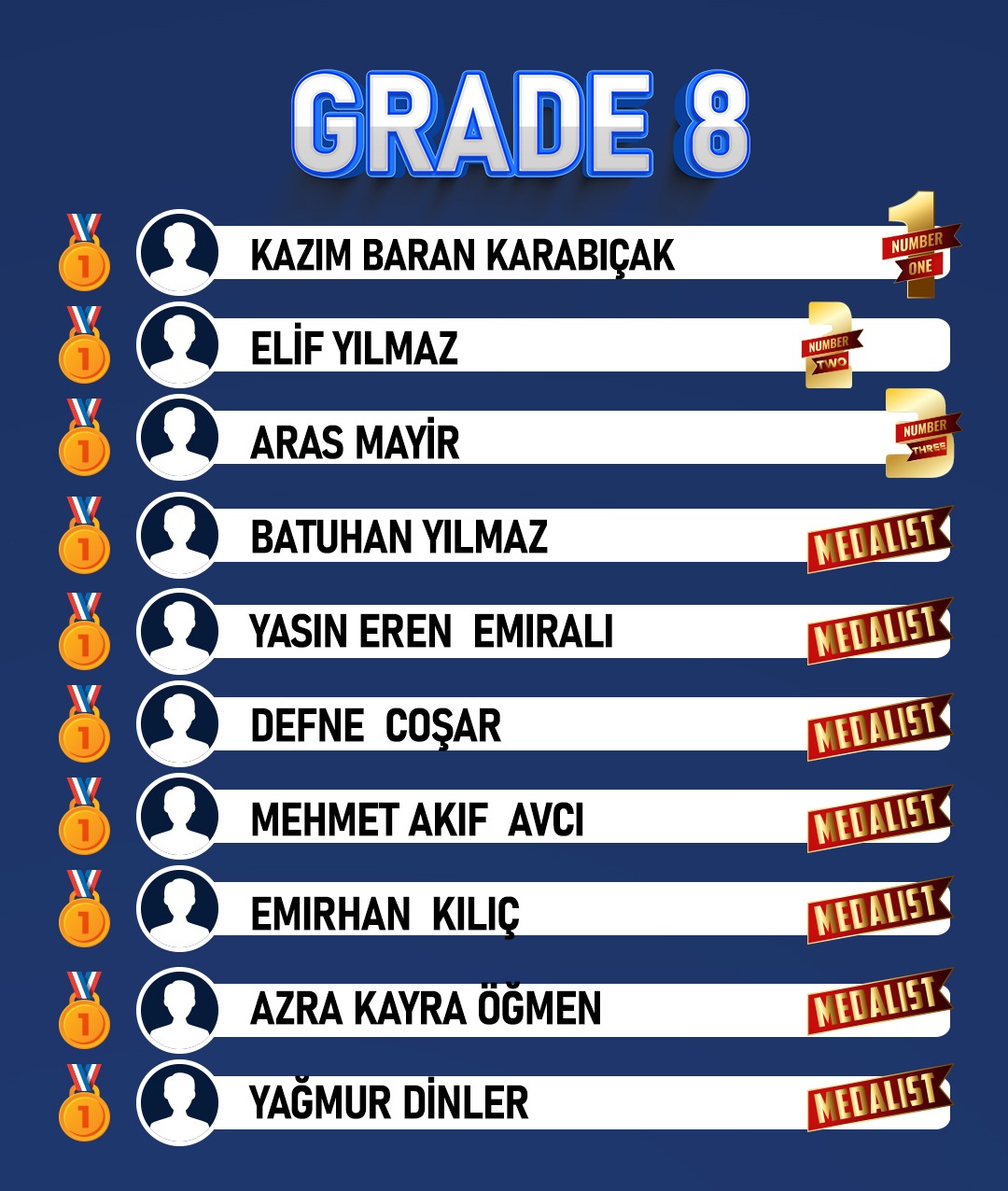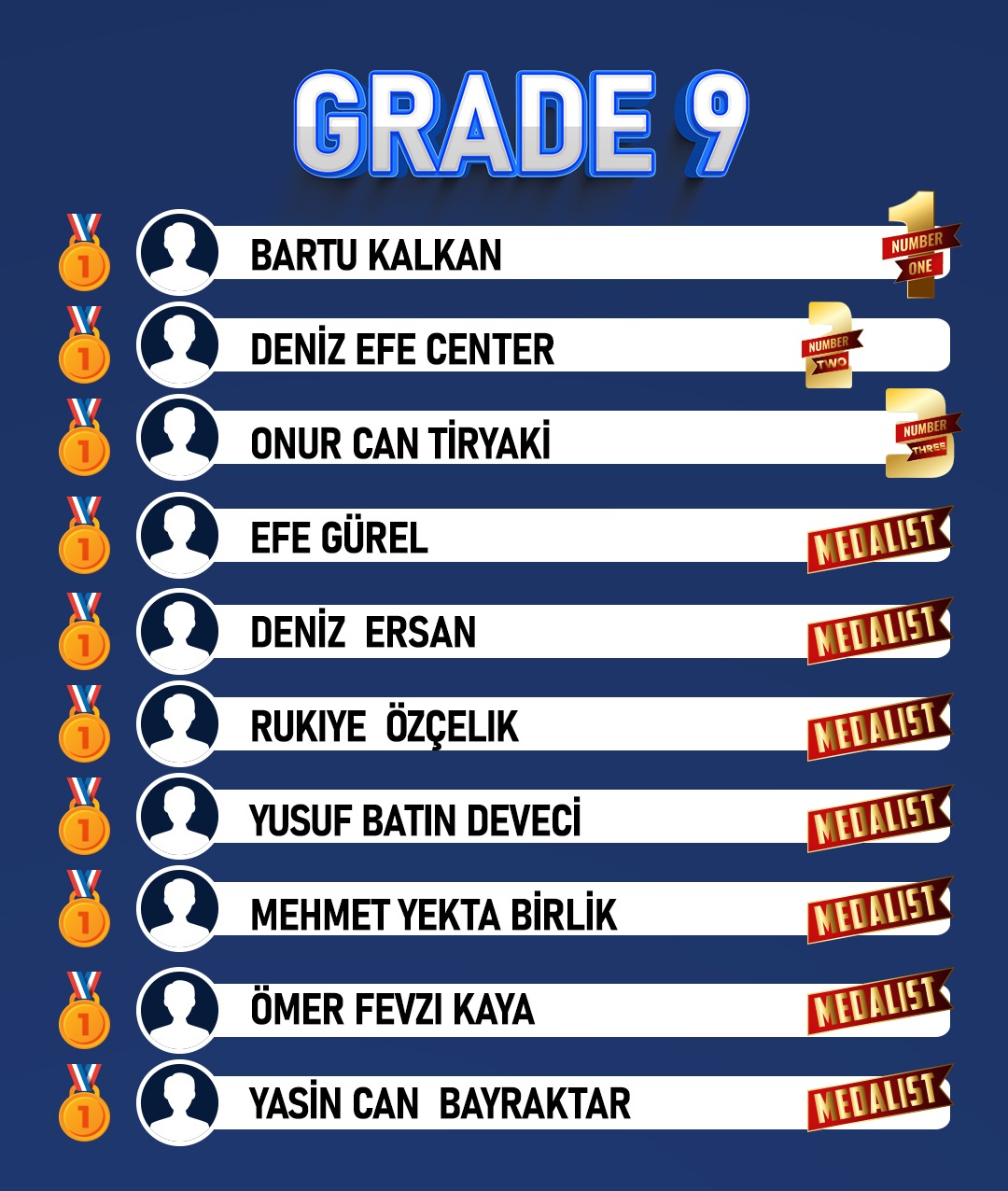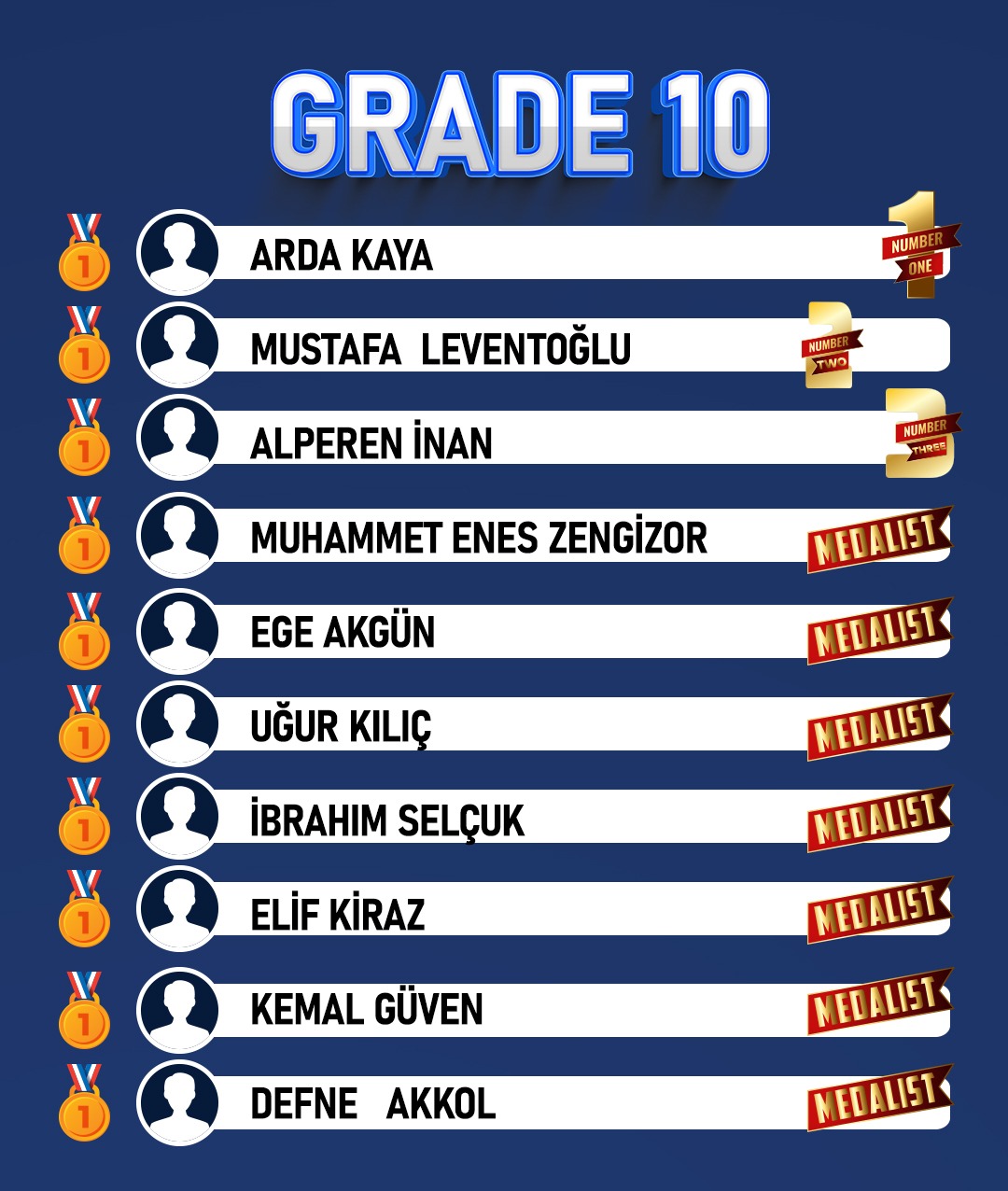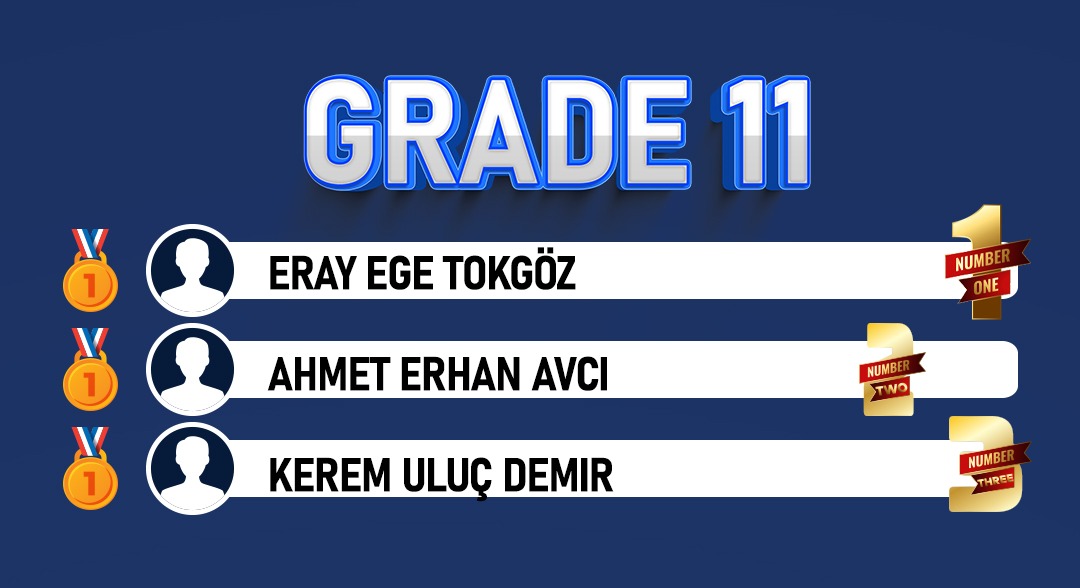Turkic International Mathematical Olympiad 2024: Rules
Participant Coverage Scope
The Turkic International Mathematical Olympiad is established to identify talented students in the field of mathematics and develop their skills. This olympiad offers an excellent platform for students of various age groups to test and develop their mathematical abilities. Participants compete in different categories according to specific age groups and educational levels.
The following categories are available:
Grade 3
Grade 4
Grade 5
Grade 6
Grade 7
Grade 8
Grade 9
Grade 10
Grade 11
Each category is unique with questions prepared according to the educational level and offers ample opportunities for each participant to demonstrate their abilities. These categories help students understand mathematics more profoundly and better appreciate its real-life applications.
2. Competition Format
The Turkic International Mathematical Olympiad is a two-stage competition that identifies and evaluates mathematical talents on a global scale. The selection round is organized within each participating country, where students face the initial challenge and compete for a place in the final. The final round is held in a designated country each year, where all finalists gather to showcase their skills on an international level.
Selection Round: In this stage, students answer multiple-choice tests in educational institutions of each participating country. The purpose of this round is to select the best students from each category for the final stage.
Final Round: Students who succeed in the selection round come together for the final stage. This round is a challenging phase where all finalists face more difficult and comprehensive questions. The final round tests the mathematical reasoning abilities, problem-solving skills, and creative approaches of the students.
This two-stage competition format allows for a comprehensive assessment of students' mathematical skills and enhances their ability to compete on an international level. It also facilitates cultural exchange and the building of international friendships among students.
3. Evaluation Criteria
The evaluation system of the Turkic International Mathematical Olympiad is specially designed to objectively and fairly measure students' mathematical abilities. This system covers every aspect of the two-stage competition, ensuring a precise assessment of students' mathematical understanding and abilities.
Selection Round Evaluation:
Grade 3 - 20 questions - 60 minutes
Grade 4 - 20 questions - 60 minutes
Grade 5 - 25 questions - 90 minutes
Grade 6 - 25 questions - 90 minutes
Grade 7 - 25 questions - 90 minutes
Grade 8 - 25 questions - 90 minutes
Grade 9 - 25 questions - 90 minutes
Grade 10 - 25 questions - 90 minutes
Grade 11 - 25 questions - 90 minutes
The multiple-choice questions applied in this stage are selected to test students' mathematical knowledge quickly and efficiently. This format measures how many questions students can correctly answer within a certain period, demonstrating their fundamental mathematical understanding and problem-solving abilities.
Final Round Evaluation:
The final stage is particularly designed with questions for grades 9, 10, and 11 that challenge students' mathematical logic and creative problem-solving skills. If necessary, with prior notification, open-ended questions are used in the final stage to assess students' understanding of more complex mathematical concepts and their applications, as well as how they can apply this knowledge.
The evaluation criteria for both stages reflect the overall skills and abilities of students in mathematics and are prepared according to international standards. This system helps to assess each student's potential in a fair and objective manner.
4. Questions and Appeals
The question selection and appeal process of the Turkic International Mathematical Olympiad play a crucial role in ensuring the competition's transparency and fairness. Questions are carefully chosen to test participants' mathematical thinking and analytical abilities from various aspects. The appeal process ensures that all participants' responses are evaluated fairly and objectively.
Question Selection and Languages: The Olympiad's questions are prepared considering different educational levels and skills. They are designed to broadly measure participants' mathematical reasoning and problem-solving abilities. Questions are presented in the participants' native languages or in internationally accepted languages - English, Russian, and Turkish. This ensures that all participants understand the questions and can respond to them in the best way possible.
Appeal Process: The appeal process is established to ensure the correct and fair evaluation of students' answers, providing a mechanism for reviewing potential errors and contentious issues. Based on the universally accepted rules in international educational Olympiads, participants or their mentors can appeal within a certain period (usually 24 hours) after the examination results are announced. During this period, participants can express their opinions on the correctness of questions, evaluation of answers, and other technical issues. The appeal committee carefully investigates each complaint and, if necessary, corrects the answers and results.
This process ensures the competition's fairness and transparency and helps guarantee that all participants compete under equal conditions. In both stages of the Olympiad, the selection of questions and the appeal process allow for the best possible testing of students' mathematical abilities and ensure a fair evaluation.
5. Awards and Results
The award and results system of the Turkic International Mathematical Olympiad is designed to recognize the achievements of students and encourage them to advance further towards excellence in mathematics. This system evaluates the efforts of participants and provides them with ample opportunities to demonstrate their abilities.
Selection Round Awards: The selection round is the participants' initial challenge, and awards are presented based on the results achieved in this round. The awards are represented by gold, silver, and bronze medals, corresponding to the performance shown by the students in the competition. These medals indicate the level of success achieved by the students in each category. In addition, certificates are provided for all participants, recognizing their participation in this stage.
Selection Round Awards:
In the selection round, awards are determined based on the points accumulated by the participants.
Gold Medal: Awarded to those within the highest percentage of the total number of participants (top 5%).
Silver Medal: Awarded to the next highest percentage of participants (top 10%).
Bronze Medal: Awarded to the subsequent highest percentage of participants (top 15%).
Certificates are given to every participant for their involvement in the competition, but only those within the above percentages qualify for the final stage.
Final Round Awards:
The awards in the final round are based on the total points participants accumulate in this round. The number of medals can be adjusted based on the number of participants.
Gold Medal: Awarded to students who rank in the top 10 from each level.
Silver Medal: Awarded to students who rank from 11th to 20th place from each level.
Bronze Medal: Awarded to students who rank from 21st to 30th place from each level.
Special Awards for the Final Round:
The highest-scoring students in each category are awarded various prizes:
First Place: A special gift is presented to the student showing the highest result.
Second Place: A special gift is presented to the student with the second-highest result.
Third Place: A special gift is presented to the student with the third-highest result.
Special Prize: Students competing in the 11th grade are offered opportunities for university admissions. This is seen as a significant step in their academic careers.
This award system encourages students' achievements in the mathematical field, boosts their motivation by providing stimuli to reach higher levels, and is essential for acknowledging their skill and effort in mathematics. With this awards system, the Olympiad recognizes and plays a significant role in the development of young students with interest and talent in mathematics
